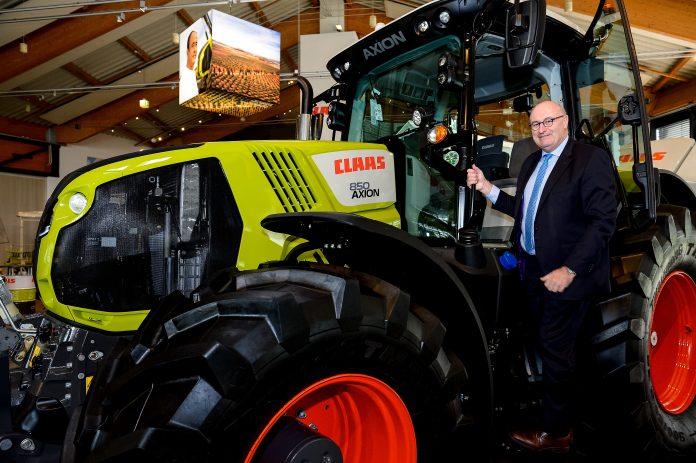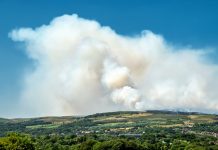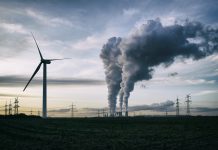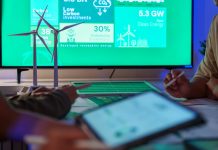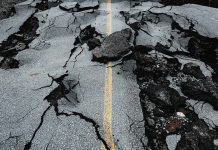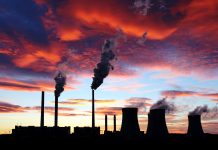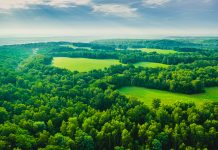Commissioner Phil Hogan recently shared his thoughts on the role of agriculture in water sustainability, during a speech at European Policy Centre Dialogue
The role of agriculture in water sustainability is a complex policy issue and must be approached in a holistic way. We know that a clean and reliable water supply is absolutely fundamental to human, animal and plant health.
We know that agriculture is a water-intensive industry. We know that as the global population continues to increase, there will be more mouths to feed from a farming point of view. And we know that farming and food production need to do meet this challenge while also doing more to fight climate change, preserve biodiversity and maintain the environment.
So how do we make progress? The first step is to create a broad awareness among policymakers and stakeholders about the magnitude of the challenge.
Thankfully, there are positive signs that water and agriculture are growing in importance on the international agenda. The Agriculture Ministers’ Declaration at the 2017 G20 meeting underlines that agriculture and forestry can provide valuable solutions for water sustainability.
Water and agriculture are also at the core of the 2030 Agenda for Sustainable Development. The Sustainable Development Goals on sustainable water management (SDG6) and sustainable agriculture (SDG2) outline some of the challenges involved, and present some useful targets.
Sustainable water management is the explicit target of Sustainable Development Goal (SDG) 6, which calls for a global agriculture able to enhance farming productivity while reducing the impact on the availability and quality of water.
At European level, we take these international commitments seriously and we are in the process of formulating a roadmap for action. And it is clear that we have to act now. We cannot wait, the challenges are pressing and we all have an interest in tackling them immediately.
For this reason, EU Environment Commissioner Vella and I established a Task Force on Water to develop a long-term alliance between different Commission services. The task force looks at various ways of improving water status in the EU in a cross-sectoral manner and with immediate effect.
Joint work has been initiated to improve the implementation of existing legislation, to boost necessary investment and spread best practice with a view to improving water sustainability in EU agriculture.
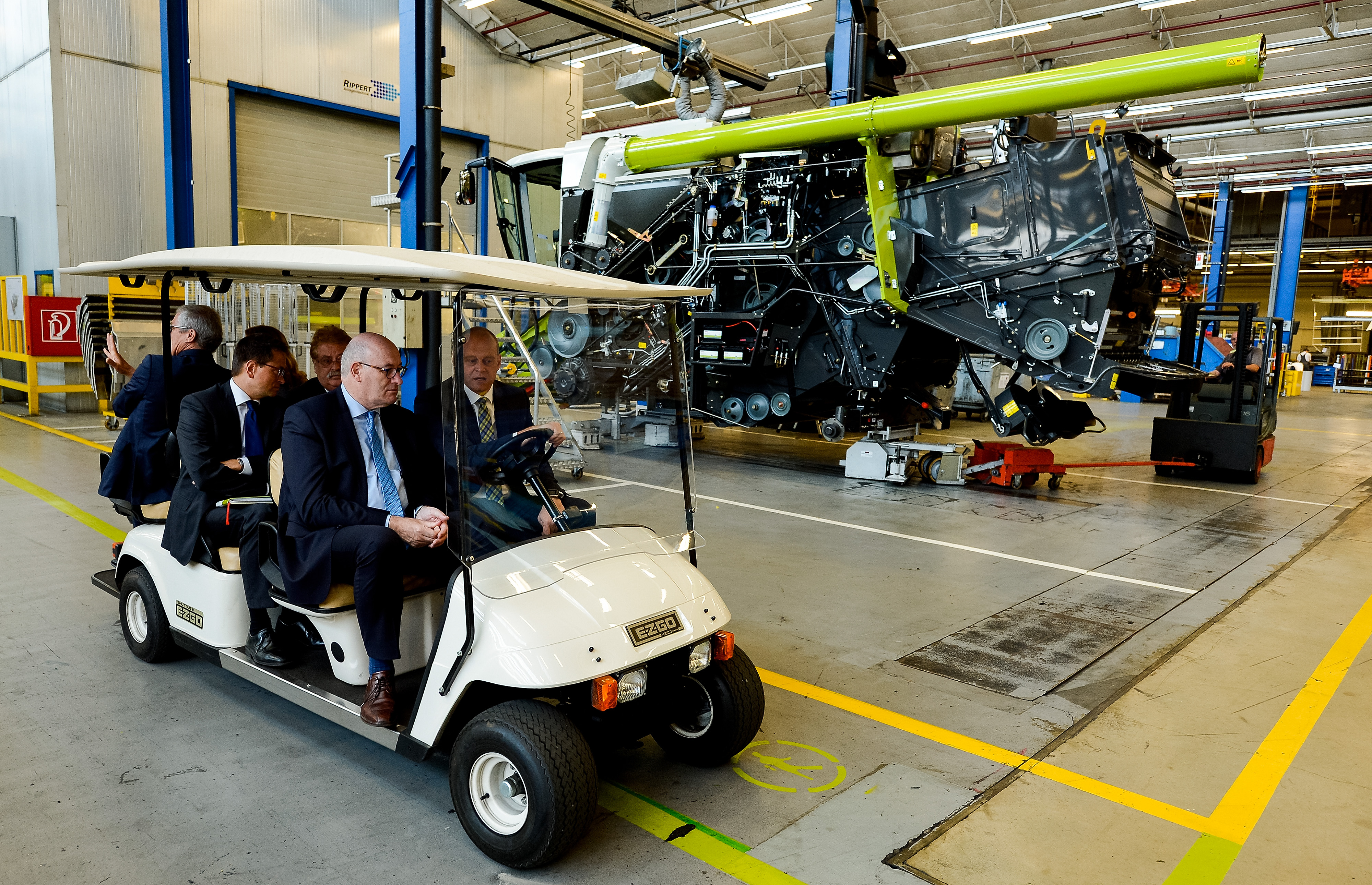
The Water Task Force spearheaded the Commission Staff Working Document on “Agriculture and Sustainable Water Management in the EU“, published on 28th April 2017.
This document shows in a clear and specific way the Commission’s commitment to achieve these goals. It finds that current EU agricultural and water legislation provides a wide range of adequate policy tools for improving water status, boosting investment and increasing knowledge and innovation roll-out.
Dedicated rural development measures can do important work by supporting environment and climate action, Water Framework Directive-targeted measures, knowledge transfer, and especially investment support.
But using existing legislation is not enough. Sharing best practice and boosting innovation and related investment is the key to success. Numerous EU research and innovation funds are already supporting projects to improve both the quantity and quality of our water supply. We have compiled a detailed report outlining farm level adaptation strategies which already exist or can be developed to deal with water scarcity.
We have invested in new technologies such as robots measuring water consumption in wine production, 3D sensors to measure plant growth, and Unmanned Aerial Vehicles (UAVs) for precision agriculture applications such as water stress monitoring, detection of nutrient deficiencies and crop diseases.
And this year we are backing new projects to tackle the pollution of water sources from pesticides and fertilisers used in farming systems.
In addition, my services in DG AGRI have demonstrated a clear commitment to the Commission’s Circular Economy Action Plan. Water reuse is an area that can have both quality and quantity implications. The minimum quality requirements currently under preparation aim to support the reuse of treated wastewater in safe and cost-effective conditions.
All these measures have a role to play, but the mobilisation of additional funding for necessary investment is crucial.
On top of the Structural Funds, the potential provided by new financial instruments should be seriously explored. In this respect, the new agriculture window under EFSI 2.0 is an opportunity to be seized. Work is currently ongoing to identify a portfolio of investments and projects.
But whatever we do, there is one obvious fact that we must not forget: We need to work with farmers and incentivise their ability to achieve environmental and climate targets. This means giving them better tools both from a policy and practical point of view.
This is why the Commission has taken concrete action to support data-driven farming and precision agriculture as one important step in dealing with the problem.
Water efficiency and water can only be fully addressed by making proper use of new technologies, such as big data, remote sensors, and artificial intelligence. These will help farmers to maximise both the economic output and environmental performance of their farms.
It is absolutely crucial that we ensure the sustainable use of fertiliser and pesticides, including proper management of manure and slurry. Many of the challenges we face related to water stem from an inappropriate use of inputs.
Therefore, I deem it absolutely essential to enhance our policy tools in relation to inputs. Proper nutrient management on farms is vital and will receive more attention in the future CAP than is currently the case.
In this respect, I am happy to announce that various Commission services are collaborating to set up a platform for on-farm nutrient management.
This tool will be directly accessible for farmers and integrates information from various sources including satellite data. On this basis farmers can make informed decision about nutrient requirements for each land parcel.
This will enable not only a more efficient nutrient use overall but can also have the positive knock-on effects of boosting water use efficiency and emissions reduction.
If we can apply this tool on a majority of farms across Europe, it will be a major achievement and a game changer in farm management practices. And I am happy to announce another major achievement: we are setting up a Knowledge Hub on Water and Agriculture.
Whatever we do, information is the key to success. Knowing where the real problems are crucial if we want to develop appropriate solutions. Therefore, one of the first steps of our water task force was to make sure that all relevant and existing data is compiled and accessible to the wider public. This is why we set-up a Knowledge Hub on Water and Agriculture in partnership with the European Joint Research Centre.
This Knowledge Hub will link and integrate existing sources of information and generate new knowledge as well. The information will be widely accessible via an internet portal. It can therefore be used by the Commission, by Member State administrations, as well as by stakeholders to identify the best solutions for developing targeted and tailor-made policy tools in the field of water and agriculture.
As you can see, my colleagues and I have worked hard over the past two years to place water sustainability at the core of our work. The Commission is pleased to be leading from the front in this shared challenge, but we need our national, regional and local authorities to also take up the fight.
I therefore call on all participants to highlight these possibilities at national level and encourage your Member State authorities to actively engage with the Commission services in these endeavours.
This is an issue that concerns all of us, and it is only when all of us are working together that we will begin to make real headway. It is a field which will remain relevant – today and in the future.
Water sustainability will remain a central challenge for the future CAP. But as I hope I have outlined, we can already make real progress with the tools we currently have and this is what we should focus on.
This article is based on a speech given by Commissioner Phil Hogan at European Policy Centre Dialogue on “Water & Agriculture in Europe”, Thursday 28th September 2017, Brussels. You can read more at:
Phil Hogan
Commissioner for Agriculture & Rural Development
European Commission
Tel: +32 2 299 96 96
https://ec.europa.eu/commission/commissioners/2014-2019/hogan_en
Twitter: @PhilHoganEU

